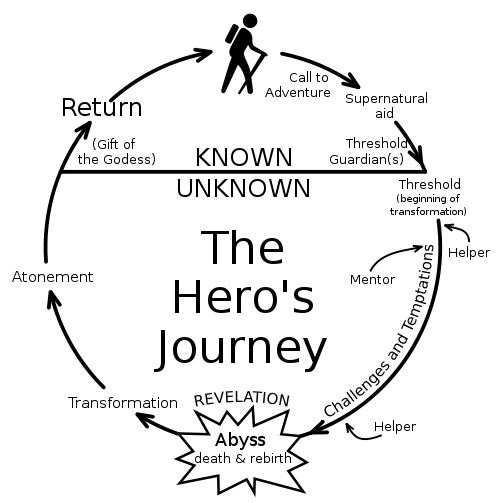 Even casual fans of music know that Beethoven’s Symphony No. 3, the “Eroica,” has to do with heroism, and probably know the backstory of how it was written for (and then denied to) Napoleon.
Even casual fans of music know that Beethoven’s Symphony No. 3, the “Eroica,” has to do with heroism, and probably know the backstory of how it was written for (and then denied to) Napoleon.
But if you consider the hero myth as an overall aesthetic goal–the heroic journey–you begin to hear it all over Beethoven’s music. In fact, it is so dominant that Scott Burnham wrote a book about it called Beethoven Hero (1995).
I’ve just completed a new piano solo called Dantes Variations in which I start with a heroic theme and submit it to many variations. Quite late in my composition process I came across this image from Wikipedia, and I thought I would share it here. Consider all the fantastic ways you can take your music if you think of some of these ideas: “call to adventure,” “threshold (beginning of adventure),” “helper,” “death and rebirth,” transformation,” “atonement,” “gift of the goddess.”
It sounds like a recipe for a great piece of music! And inspiring: what would be meant by the “helper” in a musical composition? Perhaps a secondary theme, but also perhaps simply an insistent pitch, or even a rhythm.
But I also wonder about how things can be changed up. For instance, what if some of these ideas were taken out of sequence? What if “gift of the goddess” comes first and then “death” with no rebirth?
One last consideration: There are so many variations of heroes. The tragic hero, the anti-hero, the super hero: Can any of these be expressed in a distinct musical way?
Leave a Reply